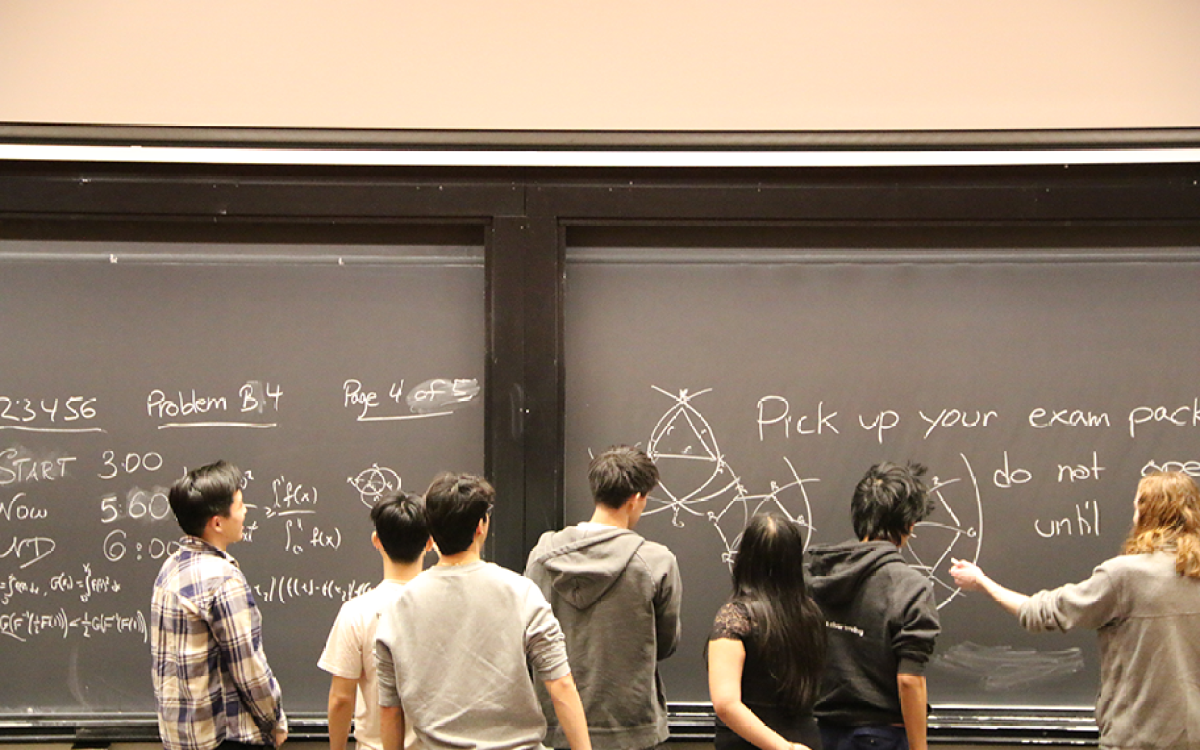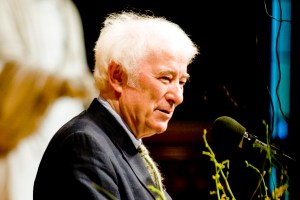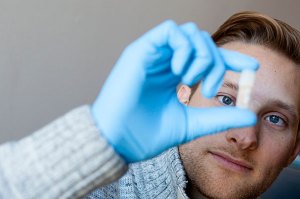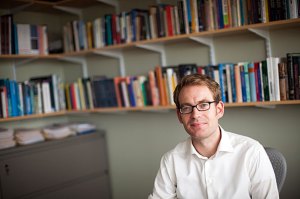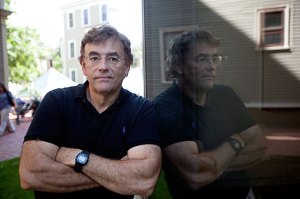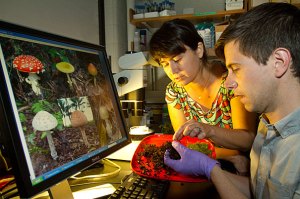Tag: FAS
-
Campus & Community
Two named Marshall Scholars
Harvard senior Aditya Balasubramanian and recent graduate Alex Palmer are among 34 students nationwide who were recently awarded Marshall Scholarships.
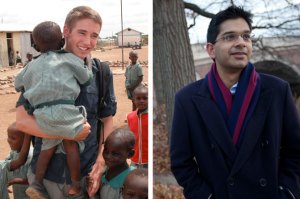
-
Science & Tech
Ancient Iraq revealed
Jason Ur, the John L. Loeb Associate Professor of the Social Sciences, earlier this year launched a five-year archaeological project — the first such Harvard-led endeavor in the war-torn nation since the early 1930s — to scour a 3,200-square-kilometer region around Irbil, the capital of the Kurdish region in northern Iraq, for the signs of…
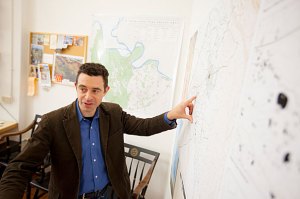
-
Health
Sophisticated worms
In a new study of worm locomotion, researchers show that a single type of motor neuron drives an entire sensorimotor loop.
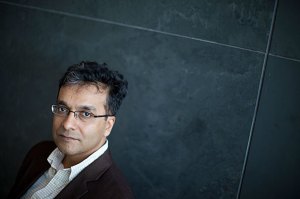
-
Campus & Community
Six from Harvard win Rhodes
Six from Harvard win Rhodes Scholarships, among only 32 students nationally selected for the prestigious academic honor.
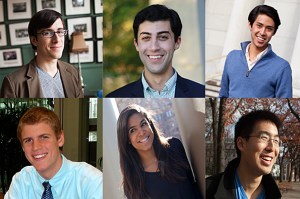
-
Campus & Community
Rhodes selects six Harvard students
Six Harvard undergraduates are among the 32 American men and women chosen as Rhodes Scholars on Sunday. They will begin their studies at the University of Oxford in October 2013.
-
Campus & Community
Taking a moment to give thanks
Faculty of Arts and Sciences administrators and staff gathered this week to thank co-workers and colleagues for their professionalism and thoughtfulness — and to reach out to those less fortunate in the community.
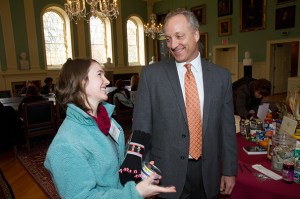
-
Science & Tech
Intelligent Earth
Once its axis tilts, how does the Earth “know” to return to its normal orientation? Work by Harvard researchers provides some answers.
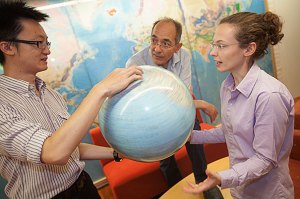
-
Science & Tech
Unearthing a dietary behavior
A new Harvard study says that pica — and particularly geophagy, or the eating of soil or clay — is far more prevalent in Madagascar, one of the few areas of the world where it had gone unreported, than researchers previously thought. The research also suggests that the behavior may be more prevalent worldwide, particularly…

-
Health
Molecular motion in detail
In a critical breakthrough in unraveling how molecular “motors” ferry proteins and nutrients through cells, Harvard scientists have produced high-resolution images that show how the chemical “foot” of dynein — one of the most complex, but least understood such motors — binds to microtubules, the cellular structures it travels on.
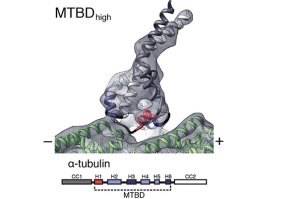
-
Health
Controlling behavior, remotely
Researchers have been able to take control of tiny, transparent worms by manipulating neurons in their brains, using precisely targeted pulses of laser light.

-
Health
Rapid acts of kindness
In a series of experiments, Harvard researchers found that people who make quick decisions act less selfishly than those who deliberate.

-
Health
Forward thinking on HIV
A research team led by Martin Nowak has developed a technique for modeling the effects of various HIV treatments and for predicting whether the treatments will cause the virus to develop resistance.

-
Health
Bringing the psych lab online
A team of researchers from Harvard and Wellesley College shows that data gathered from online volunteers can be just as good as data collected in the lab.

-
Science & Tech
Merging the biological, electronic
For the first time, Harvard scientists have created a type of cyborg tissue by embedding a 3-D network of functional, biocompatible, nanoscale wires into engineered human tissues.
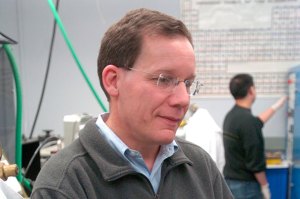
-
Science & Tech
Soft robots go for color, camouflage
Researchers have developed a system — inspired by nature — that allows soft robots to either camouflage themselves against a background, or to make bold color displays. Such a “dynamic coloration” system could one day have a host of uses, ranging from helping doctors plan complex surgeries to acting as a visual marker to help…
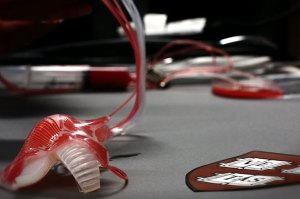
-
Campus & Community
New dean for GSAS
Xiao-Li Meng, chair of Harvard’s Department of Statistics, has been named dean of the Graduate School of Arts and Sciences.
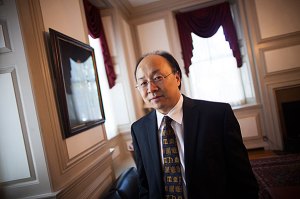
-
Health
Simplifying multidrug therapies
As described in a paper published in the Proceedings of the National Academy of Sciences, a research team found that by studying how drugs interact in pairs, researchers can predict how larger combinations of drugs will interact.
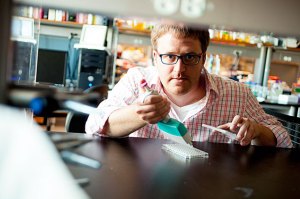
-
Health
Stars in the making
A paper authored by Harvard’s Eli Visbal with colleagues from the California Institute of Technology and Tel Aviv University suggests that it may be far easier than commonly thought to peer deep into the universe’s history and observe the telltale signs of the formation of the first stars and galaxies.
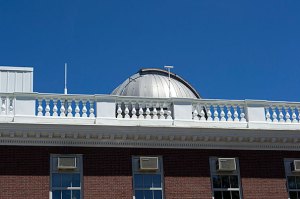
-
Health
Health care savings, naturally
Though questions persist about whether natural remedies are as effective as their pharmacological cousins, one Harvard researcher is trying to understand the economic benefits people receive by relying on such traditional cures.
-
Science & Tech
Concerns about climate change, health
A team of researchers led by James G. Anderson, the Philip S. Weld Professor of Atmospheric Chemistry, warns that a newly discovered connection between climate change and depletion of the ozone layer over the U.S. could allow more damaging ultraviolet (UV) radiation to reach the Earth’s surface, leading to increased incidence of skin cancer.
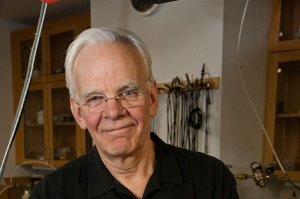
-
Health
A fresh look at mental illness
In a paper published in Neuron, Joshua Buckholtz and co-author Andreas Meyer-Lindenberg identify a biological reason for why many mental disorders share similar symptoms, a situation that makes diagnosis challenging.

-
Science & Tech
Stages of superconductivity
Harvard physicists say they have unlocked the chemical secret that controls the “fool’s gold” of superconductivity, a “pseudogap” phase that mimics, but doesn’t have all the advantageous properties of, superconductivity.

-
Science & Tech
Helping hunt for the Higgs
For decades, it has been the holy grail of particle physics, an elusive subatomic particle that offered the tantalizing possibility of explaining how much of the universe works. Billions of dollars have been spent in the search for it. Thousands of researchers — including dozens from Harvard — have conducted trillions of experiments as part…

-
Health
Transforming cancer treatment
Professor Martin Nowak is one of several co-authors of a paper, published in Nature on June 28,that outlines a new approach to cancer treatment that could make many cancers manageable, if not curable, by overcoming resistance to certain drug treatments.

